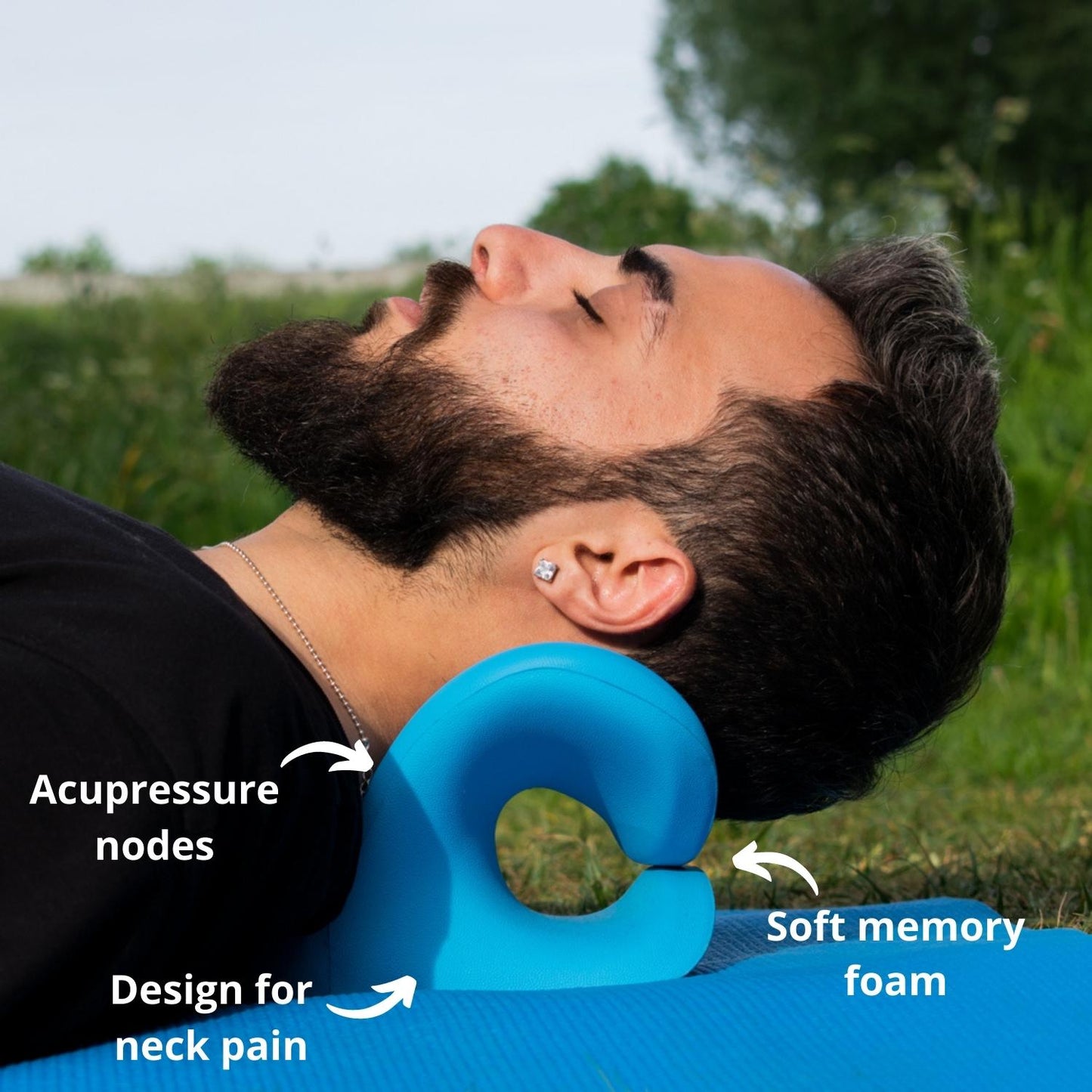Boost Your Posture and Minimize Neck Discomfort with the Neck Cloud
Boost Your Posture and Minimize Neck Discomfort with the Neck Cloud
Blog Article
The Impact of Tension on Neck Discomfort: Approaches for Reducing Stress and Discomfort
In today's busy globe, it's no trick that stress has become a common element in the start and exacerbation of neck discomfort. Join us on a journey to unwind the impact of stress on neck discomfort and find effective methods to ease pain and enhance overall top quality of life.
Comprehending Stress-Related Neck Discomfort
Neck pain is a typical problem that can commonly be associated to stress. Stress-related neck discomfort can manifest as stress, tightness, or discomfort in the neck and shoulder area. The connection between tension and neck pain exists in the body's physiological feedback to anxiety, which can cause muscle stress and rigidity in the neck muscle mass. Chronic anxiety can result in persistent neck discomfort and intensify status quo like cervical spondylosis or muscle mass pressures.

Identifying Common Tension Areas
Regularly experienced by people under tension, tension areas in the body can offer valuable understandings into the physical indications of psychological pressure. One common stress area is the neck, where stress frequently materializes literally. Tension frustrations, rigid neck muscle mass, and restricted variety of motion are usual symptoms of stress-related neck stress. The shoulders are another common location where stress collects. Stress and anxiety can cause the muscular tissues in the shoulders to tighten up, resulting in discomfort and discomfort. In addition, the top back is susceptible to stress build-up, specifically in individuals who experience chronic anxiety. Poor pose and long term resting can worsen tension in this field. The jaw is also a typical place for stress-related stress, as numerous individuals clinch their jaw or grind their teeth when worried. Understanding these typical tension areas can aid people recognize the physical signs of stress and take actions to resolve them prior to they rise right into persistent discomfort or pain.
Executing Leisure Strategies
Relaxation strategies are look at this web-site valuable devices for reducing neck pain triggered by tension. Furthermore, activities like yoga exercise and tai chi incorporate both physical motion and leisure, making them effective methods for reducing stress and neck discomfort. By incorporating these relaxation techniques right into your daily regimen, you can assist manage tension levels, lower tension in the neck, and ease pain connected with stress-induced neck discomfort.
Including Self-Care Practices
Including self-care practices is essential for preserving total well-being and handling stress-related neck pain properly. Involving in regular physical task, such as mild stretching workouts or yoga exercise, can help ease tension in the neck and shoulders. Practicing good position throughout the day and taking regular breaks from prolonged sitting or screen time can also stop stress on the neck muscular tissues.
Furthermore, prioritizing sufficient sleep and developing a consistent sleep routine can contribute substantially to decreasing anxiety levels and promoting leisure. Producing a calming bedtime regimen, such as reviewing a book or taking a warm bathroom, can aid prepare the mind and body for relaxed sleep. Additionally, preserving a balanced diet abundant in nutrients and remaining hydrated can sustain overall wellness and minimize inflammation that may aggravate neck pain.
Integrating click here for more mindfulness methods, such as deep breathing exercises or reflection, can aid manage tension and promote leisure. Requiring time for oneself, taking part in hobbies, and establishing borders to secure personal time are also important elements of self-care that can add to lowering stress and anxiety and alleviating neck pain.
Seeking Expert Aid
Just how can people efficiently attend to consistent neck pain that is affecting their day-to-day live and well-being? Looking for professional help can be an important action in managing and alleviating neck discomfort. Consulting with health care specialists such as chiropractic doctors, physical therapists, or orthopedic experts can provide useful understandings and customized treatment strategies. These experts can carry out complete analyses to diagnose the underlying reasons for neck pain and suggest suitable interventions.
Chiropractic doctors specialize in spine adjustment strategies to enhance positioning and decrease stress in the neck area. Physical specialists supply targeted stretches and workouts to enhance muscle mass, enhance adaptability, and enhance total neck function. Orthopedic experts can give advanced clinical interventions such as injections or surgical options for serious situations of neck pain.
Verdict

Stress-related neck pain can show up as stress, tightness, or pain in the neck and shoulder location. The link in between tension and neck pain exists in the body's physiological reaction to tension, which can result in muscular tissue stress and rigidity in the neck muscle mass. Tension migraines, tight neck muscle mass, and restricted range of activity are usual signs of stress-related neck tension. By integrating these relaxation strategies into your everyday routine, you can help manage stress and anxiety degrees, reduce stress in the neck, and relieve discomfort connected with stress-induced neck pain.

Report this page